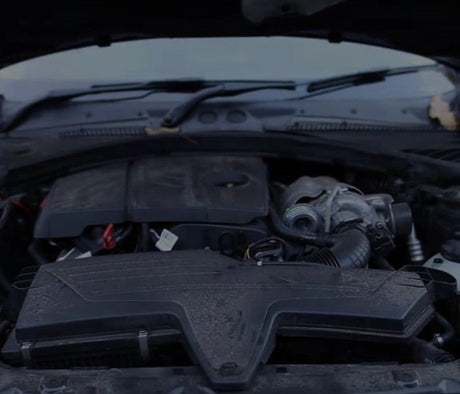Introduction
When it comes to keeping your car looking its best, one area that can often be overlooked is the wheels. But detailing car wheels is an important part of maintaining the overall appearance of your vehicle, and can even help to extend the life of your wheels. In this article, we'll cover everything you need to know about how to detail car wheels, from what products to use to how to clean alloy wheels, and more. Whether you're a car enthusiast or just looking to keep your vehicle looking its best, read on to learn more about how to detail car wheels like a pro.
What do car detailers use to clean wheels?
When it comes to cleaning car wheels, there are a variety of products that professional detailers use to get the job done. Some of the most common products include wheel cleaners, degreasers, and all-purpose cleaners. Wheel cleaners are designed specifically for cleaning wheels and often contain powerful cleaning agents that can break down stubborn dirt and grime. Degreasers are another option and are especially useful for removing brake dust and other types of grease and oil. All-purpose cleaners can also be used for cleaning wheels and can be a more versatile option for those who want a multi-use product. However, it's important to note that not all cleaners are safe for all types of wheels, so be sure to check the label and choose a product that's appropriate for your specific wheels.
What is the best way to clean car wheels?
Cleaning your car wheels may seem like a simple task, but doing it properly can make all the difference in keeping your wheels looking their best. Here is a step-by-step guide on how to clean your car wheels effectively:
- First, rinse the wheels with water to remove any loose dirt and debris.
- Apply the wheel cleaner to the wheel, making sure to cover both the face and barrel of the wheel.
- Let the cleaner sit for a few minutes to allow it to break down any stubborn dirt and grime.
- Use a wheel brush to agitate the cleaner and remove any remaining dirt and grime.
- Rinse the wheel thoroughly with water to remove all the cleaner.
- Dry the wheel with a clean microfiber towel to prevent water spots.
It's important to note that different types of wheels may require different types of brushes or tools for cleaning. For example, wire brushes or abrasive pads should not be used on painted or chrome wheels, as they can scratch the surface. Instead, use a soft-bristled brush or a microfiber towel to clean these types of wheels. For alloy wheels, a hog hair brush can be a good option for getting into the tight spaces between the spokes. Overall, choosing the right tools and following the proper steps can help ensure that your wheels are cleaned effectively without causing any damage.
How do you detail alloy wheels?
Alloy wheels are a popular choice among car enthusiasts, but they require special attention when it comes to detailing. Here's why:
Unlike steel wheels, which are often painted or coated, alloy wheels are typically made of a combination of aluminium and other metals, which gives them a unique look and often a polished finish. This means that they require special care when it comes to cleaning and maintaining their appearance.
Here's a step-by-step guide on how to detail alloy wheels:
- Start by cleaning the wheels with a non-acidic wheel cleaner or a mild soap and water solution.
- Use a soft-bristled brush to clean in between the spokes and any other hard-to-reach areas.
- Rinse the wheels thoroughly with water to remove any remaining cleaner.
- Dry the wheels with a clean microfiber towel to prevent water spots.
- Apply a specialized alloy wheel cleaner to remove any stubborn brake dust or other contaminants. Be sure to follow the instructions on the label and avoid using any abrasive pads or brushes.
- If your wheels have a polished finish, use a specialized polish to restore their shine. For painted or coated wheels, a protective wax or sealant can help to prevent damage and maintain their appearance.
- Inspect your wheels regularly for any signs of damage or corrosion, and address any issues as soon as possible to prevent further damage.
When it comes to different types of finishes, there are a few things to keep in mind. For example, if your wheels are painted, avoid using abrasive cleaners or pads, as these can scratch the surface. Instead, opt for a non-abrasive cleaner and a soft-bristled brush. For polished wheels, be sure to use a specialized polish that's designed for use on aluminium to avoid damaging the finish. Additionally, it's important to avoid using harsh chemicals or abrasive tools on any type of wheel, as these can cause irreparable damage.

What is the best thing to clean alloy wheels with?
When it comes to cleaning alloy wheels, there are a variety of different products available. Here's an overview of the different types of cleaners that can be used:
- Acidic cleaners: These are some of the most powerful cleaners available and are great for removing stubborn brake dust and other contaminants. However, they can be quite harsh and can damage certain types of finishes if used incorrectly.
- Non-acidic cleaners: These are a safer option for cleaning alloy wheels, as they are less harsh than acidic cleaners. However, they may not be as effective at removing stubborn contaminants.
- All-purpose cleaners: These are versatile cleaners that can be used for a variety of tasks, including cleaning alloy wheels. They are typically less harsh than acidic cleaners but more effective than non-acidic cleaners.
- Waterless cleaners: These cleaners are designed to be used without water and can be a convenient option for cleaning wheels without needing access to a hose or bucket of water.
When choosing a cleaner for your alloy wheels, it's important to consider the type of finish you have. For example, if you have polished wheels, you'll want to avoid acidic cleaners, as these can damage the finish. Instead, opt for a non-acidic or waterless cleaner. For painted wheels, a non-acidic cleaner is a safe option, but be sure to avoid using abrasive pads or tools that can scratch the surface.

Why do detailers wash wheels first?
One of the key steps in the detailing process is washing the wheels first. Why is this? Well, there are a few reasons.
Firstly, the wheels tend to be the dirtiest part of the car. They are exposed to brake dust, road grime, and other contaminants that can accumulate quickly. By washing the wheels first, you can ensure that any dirt and grime is removed before moving on to the rest of the car.
Secondly, washing the wheels first can help protect the paint on the rest of the car. When you wash the body of the car first, any dirt or grime that falls onto the wheels can be kicked up and potentially scratch the paint when you go to clean the wheels later on. By cleaning the wheels first, you can prevent this from happening.
Finally, cleaning the wheels first can help you get into hard-to-reach areas. Wheels can have intricate designs and crevices that can be difficult to clean properly. By cleaning the wheels first, you can ensure that these areas are thoroughly cleaned and prevent dirt and grime from getting stuck in these areas.
Overall, washing the wheels first is an important step in the detailing process. It helps ensure that the wheels are thoroughly cleaned, protects the paint on the rest of the car, and makes it easier to clean hard-to-reach areas.

How do professionals clean rims?
If you've ever watched a professional detailer clean a car, you know that they take their job seriously. When it comes to cleaning rims, professionals have a few techniques up their sleeves to ensure that the rims are thoroughly cleaned and looking their best.
One technique that professionals use is to apply a specialized wheel cleaner to the rims. These cleaners are designed to be strong enough to remove dirt and grime, but not so strong that they damage the rims. After applying the cleaner, professionals will use a variety of brushes to scrub the rims and get into hard-to-reach areas.
Another technique that professionals use is to apply a dressing to the rims once they are cleaned. This helps protect the rims from future damage and gives them a glossy finish. There are a variety of dressings available, including ones that provide a matte or satin finish.
In addition to these techniques, professionals will also pay close attention to the type of rims they are cleaning. Different types of rims require different cleaning methods and products, and professionals will be well-versed in how to clean each type of rim.
Overall, professionals use a combination of specialized products, techniques, and tools to clean rims to a high standard. While it may take a bit of extra effort to achieve the same level of cleanliness at home, following their techniques and using quality products can help you achieve similar results.

How do you clean rims like a pro?
While professional detailers have access to specialized tools and products, there are still ways that you can clean your rims like a pro. Here are some tips and tricks to help you achieve a professional-level clean:
- Use the right products: Make sure you are using a cleaner that is specifically designed for your type of rim. Using the wrong type of cleaner can cause damage and potentially ruin your rims.
- Choose the right brushes: Select brushes that are gentle enough to avoid scratching your rims but stiff enough to effectively remove dirt and grime. Look for brushes with soft bristles and a curved shape that can get into tight spaces.
- Work in sections: Clean one small section of the rim at a time to ensure that you are giving it proper attention. This also helps prevent the cleaner from drying out before you have a chance to scrub it off.
- Use a microfiber towel: Use a microfiber towel to dry the rim after cleaning. This will help prevent water spots and ensure a streak-free finish.
- Apply a dressing: After cleaning and drying the rims, consider applying a dressing to protect them and give them a glossy finish. Make sure to choose a dressing that is appropriate for your type of rim.
By following these tips and using quality products and tools, you can achieve a professional-level clean for your rims at home. It may take a bit of extra effort, but the results will be worth it.
Do you use wheel cleaner on wet or dry wheels?
When it comes to using wheel cleaner, there is some debate about whether it's better to apply it to wet or dry wheels. Both methods have their pros and cons, so it ultimately comes down to personal preference and the condition of your wheels.
Using wheel cleaner on wet wheels can help loosen and remove dirt and grime more easily. The water can help to pre-soak the dirt and grime, making it easier to remove with the cleaner. However, using wheel cleaner on wet wheels can also dilute the product, making it less effective.
Using wheel cleaner on dry wheels can be more effective at removing tough grime and stains. It allows the cleaner to cling to the surface of the wheel and penetrate deeply into the dirt and grime. However, using wheel cleaner on dry wheels can also increase the risk of scratching your rims if you're not careful.
In general, it's best to use wheel cleaner on wet wheels for regular cleaning and maintenance. This approach is gentle and effective for removing light to moderate dirt and grime. For tougher stains and buildup, you may want to consider using wheel cleaner on dry wheels, taking care to use a soft-bristled brush and to rinse the wheels thoroughly afterward.
It's also important to note that not all wheel cleaners are created equal. Be sure to read the instructions and follow the manufacturer's recommendations for the best results.
Is it ok to pressure wash alloy wheels?
Pressure washing can be an effective way to clean alloy wheels, but it also comes with some risks. The high-pressure stream of water can easily damage the finish on your wheels if you're not careful. However, if you use the right technique and equipment, pressure washing can be a safe and effective way to clean your alloy wheels.
Before you begin pressure washing your alloy wheels, it's important to make sure that the wheels are cool to the touch. Hot wheels can be damaged by the sudden change in temperature caused by the water. You'll also want to make sure that your pressure washer is set to a low or medium pressure setting to avoid damaging the finish on your wheels.
When pressure washing your alloy wheels, it's important to use a fan nozzle rather than a pinpoint nozzle. A pinpoint nozzle can be too powerful and can easily scratch the surface of your wheels. A fan nozzle, on the other hand, provides a wider, gentler stream of water that is less likely to cause damage.
It's also important to use a cleaning solution that is specifically designed for use with pressure washers. These solutions are formulated to help break down dirt and grime, making it easier to remove with the pressure washer.
In summary, pressure washing can be a safe and effective way to clean your alloy wheels, but it's important to use the right technique and equipment. Make sure your wheels are cool to the touch, use a fan nozzle, and use a cleaning solution designed for use with pressure washers. With these precautions, you can keep your alloy wheels looking clean and shiny without risking damage to the finish.
Conclusion
In conclusion, detailing your car wheels is an important part of keeping your vehicle looking its best. Not only does it improve the appearance of the wheels, but it also helps protect them from damage and corrosion. By following the step-by-step guides and tips provided in this article, you can effectively clean and detail your wheels like a professional.
Remember to choose the right products and tools for the job, and always wash your wheels first before moving on to other parts of the car. With a little time and effort, you can keep your wheels looking shiny and new for years to come.


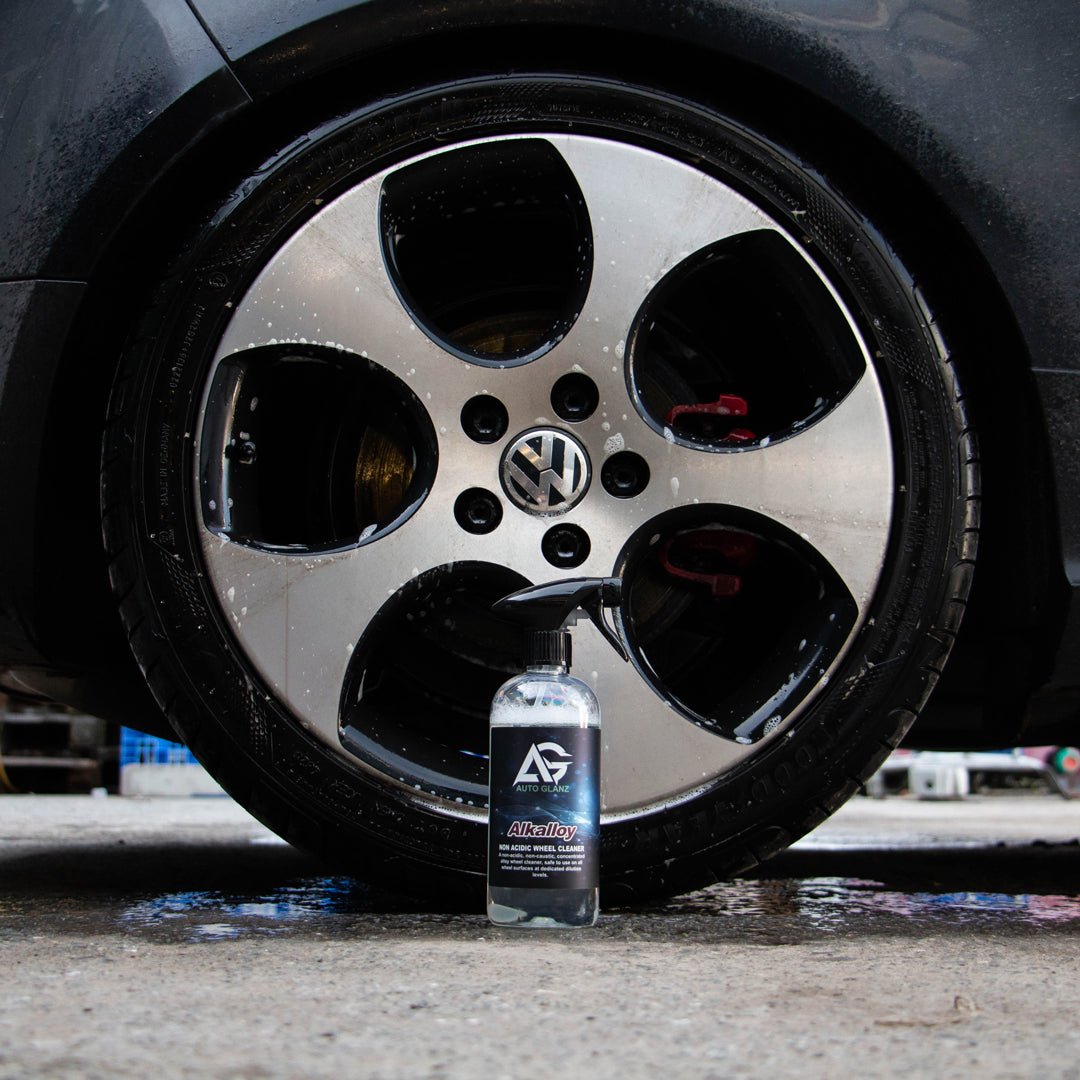
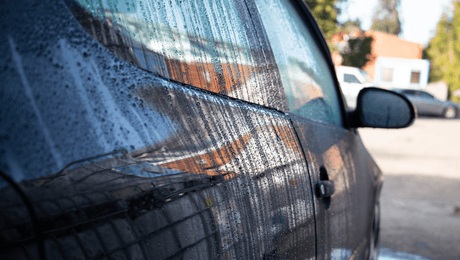
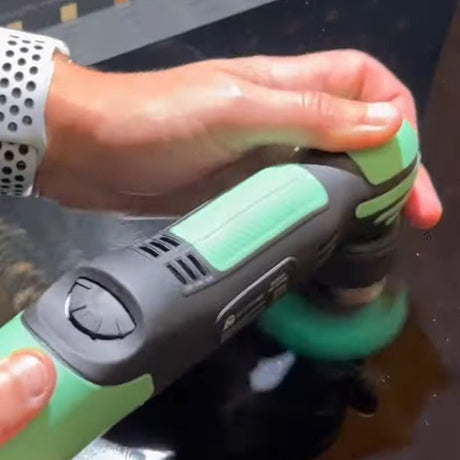
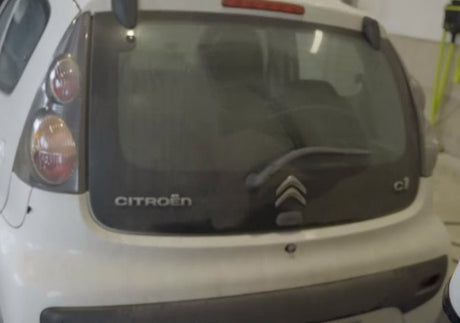
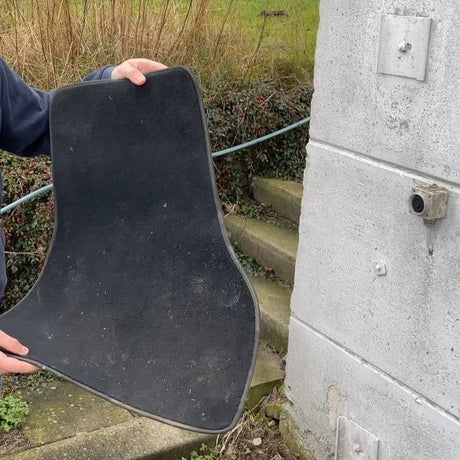
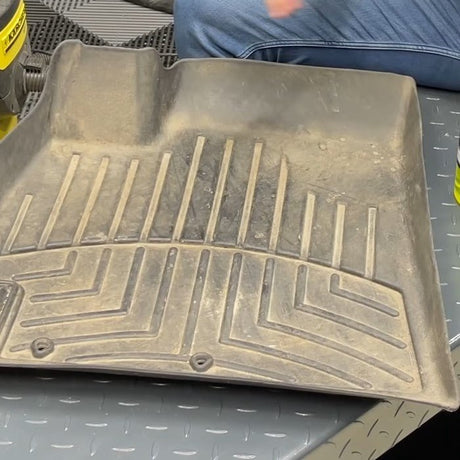
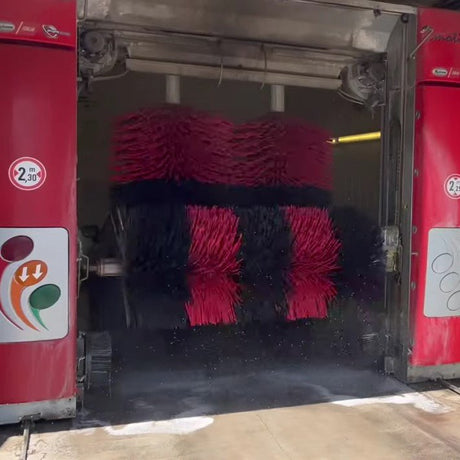
![Best Ice Scraper in the UK [2024 GUIDE] - AutoGlanz AG Car Care](http://auto-glanz.co.uk/cdn/shop/articles/best-ice-scraper-in-the-uk-2024-guide-742556.jpg?v=1709624007&width=460)
